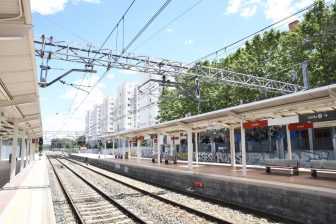
What can countries learn from Sweden when it comes to multi-modal ticketing?
Train in Sweden Mammela on Pixxabat
Already a frontrunner in ticketing for public transport, Sweden will be the first country to have a nationwide ticket distribution system based on the Open Sales and Distribution Model (OSDM), developed by Estonian-based company Turnit. “What we work on with Samtrafiken in Sweden is an exemplary use case for the rest of Europe in making end-to-end journey booking easy”, says Andres Osula, Turnit Founder and Chairman of the Board to RailTech.
Want to read more?
You have read all of your free premium articles for this month. Please become a subscriber to keep reading.
Subscribe now!
Take advantage of our exclusive offer to get full access to all premium content.




What an amazing concept! Public and private transport working jointly in their given countries in the interests of efficiency and ultimately for patron satisfaction. And what year is this? (<: